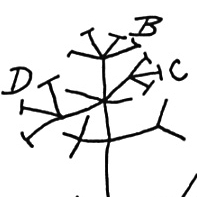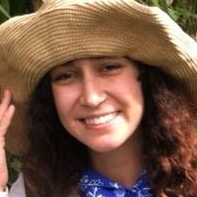Evolutionary Anthropology Society Newsletter

Report from the Presidents
Greetings EAS Members,
Normally, our December newsletter would contain a summary of our recent annual meeting, but as you know, this year is not at all like other years. While the AAA did hold a virtual meeting (and I hope some of you were able to attend) EAS did not have sessions. We did, however, hold virtual board and business meetings where we discussed the future of the society, ways to stay connected during COVID, and strategies for improving our membership numbers and engaging more meaningfully with students.
The plan discussed at our meetings was to continue to enact the mandate that was set for us in previous discussions and votes: to set up plans to begin a potential transition from AAA to the AAPA (soon to be AABA). To that end, President-elect Karen Kramer and I will be setting up meeting with the AAPA leadership in the new year to discuss specifics. If there is an in-person meeting in Baltimore we may also try to organize a joint AAPA/EAS event. Stay tuned for details.
Although we were unable to hold EAS sessions this year, we want to continue the tradition of awarding students and new investigators who are doing innovative and exciting work within the evolutionary social sciences. To that end, we will be holding a paper competition for students (in MA or PhD programs) and new investigators (those within 5 years of completing the PhD). Submissions should be sent to bscelza@gmail.com by February 15, 2021. An official call for papers will go out on social media and to our listserv shortly. An EAS awards committee will read and judge the papers, and winners will be announced in the spring newsletter and on our website.
We are also working to increase our presence on social media. If you don’t already follow our Twitter (@evanthsociety ) and Facebook groups, please do. We are working to retweet as many EAS papers and announcements as possible.
Finally, we are looking for someone to take over for the wonderful Delaney Glass as newsletter editor for EAS. Typically this post is filled by a student, who works closely with the President, President-Elect and Past-President to get out our quarterly newsletters to members. If you are interested, please email me at bscelza@gmail.com with a short statement about your interest.
I’m sure we are all more than ready to say goodbye to 2020. On that note, see you in 2021!
Brooke Scelza, EAS President Karen Kramer, EAS President-Elect Mary Shenk, EAS Past-President
Recruitment
TT position open in Evolutionary Ecology at University of Utah
Post-Doc/Visiting Scientist at the University of Alabama-Tuscaloosa
TT position in Psychology (specialisation biopsychology) at Oklahoma State University
TT position at The University of Southern Mississippi (biocultural)
Associate/Full Professor position open at the University of Alabama-Tuscaloosa (Medical/Psychological)
TT position in Biological Anthropology at Loyola University Chicago
TT position in Anthropology of Health (Biological Anthropology) at the University of Toronto- Mississauga
Four positions (Assistant, Associate, and Full) at the University of Connecticut (Environment & Human Interactions) hiring
NTT Full-time lecturer position at the University of Texas Rio Grande Valley (Biological Anthropology or Bioarchaeology)
McKennan Post-Doc Fellowship (Cultural/Medical Anthropology) at Dartmouth
Recent Member Publications
The Milpa Game: a Field Experiment Investigating the Social and Ecological Dynamics of Q’eqchi’Maya Swidden Agriculture By: Sean S Downey, Drew Gerkey, & Shane A Scaggs
Comparative Study of Territoriality across Forager Societies By: Mark Moritz, Shane Scaggs, Craig Shapiro & Sarah Hinkelman
Market integration and soil-transmitted helminth infection among the Shuar of Amazonian Ecuador By: Theresa E Gildner, Tara J Cepon-Robins, Melissa A Liebert, Samuel S Urlacher, Joshua M Schrock, Christopher J Harrington, Felicia C Madimenos, J Josh Snodgrass, & Lawrence S Sugiyama
Human adaptation to climate change: An introduction to the special issue By: Anne C Pisor & James H Jones
Matriliny reverses gender disparities in inflammation and hypertension among the Mosuo of China By: Adam Z Reynolds, Katherine Wander, Chun-Yi Sum, Mingjie Su, Melissa Emery Thompson, Paul L Hooper, Hui Li, Mary K Shenk, Kathrine E Starkweather, Tami Blumenfield, & Siobhán M Mattison
Synergies between the Developmental Origins of Health and Disease framework and multiple branches of evolutionary anthropology By: Luseadra McKerracher Ruby Fried Andrew W. Kim Tina Moffat Deborah M. Sloboda, & Tracey Galloway
Rapidly declining body temperature in a tropical human population By: Michael Gurven, Thomas S Kraft, Sarah Alami, Juan Copajira Adrian, Edhitt Cortez Linares, Daniel Cummings, Daniel Eid Rodriguez, Paul L Hooper, Adrian V Jaeggi, Raul Quispe Gutierrez, Ivan Maldonado Suarez, Edmond Seabright, Hillard Kaplan, Jonathan Stieglitz, & Benjamin Trumble
Mother’s social status is associated with child health in a horticulturalist population By: Sarah Alami, Christopher Von Rueden, Edmond Seabright, Thomas S Kraft, Aaron D Blackwell, Jonathan Stieglitz, Hillard Kaplan, & Michael Gurven
Deciding what to observe: Thoughts for a post-WEIRD generation By: Clark H. Barrett
Strengthening the evolutionary social sciences with more data, less ‘theory-worship By: Rebecca Sear
Resource demands reduce partner discrimination in Himba women By: Sean P. Prall and Brooke A. Scelza
Navigating cross-cultural research: methodological and ethical considerations By: Tanya Broesch, Alyssa N. Crittenden, Bret A. Beheim, Aaron D. Blackwell, John A. Bunce, Heidi Colleran, Kristin Hagel, Michelle Kline, Richard McElreath, Robin G. Nelson, Anne C. Pisor, Sean Prall, Ilaria Pretelli, Benjamin Purzycki, Elizabeth A. Quinn, Cody Ross, Brooke Scelza, Kathrine Starkweather, Jonathan Stieglitz and Monique Borgerhoff Mulder
Other Media
Evolutionary Anthropology in the Time of COVID-19 By: Mallika Sarma & Agustín Fuentes
HBES Roundtable Series (1) Beyond WEIRD: A decade later (2) Life history theory as applied to inter-individual variation

